Table of Contents
ToggleIn a world where the 9-to-5 grind feels more like a slow march to the office, the rise of freelancing has become nothing short of a revolution. Picture this: pajama-clad professionals sipping coffee at home while raking in the dough. Sounds dreamy, right? Freelancing has transformed from a side hustle to a full-blown career choice, and it’s not just for the artsy types anymore.
The Evolution Of Freelancing
Freelancing has transformed dramatically, evolving from a minor aspect of work life to a prominent career choice. This shift reflects changing societal values about work and independence.
Historical Background
Freelancing traces its roots to the medieval period, where skilled artisans operated independently. Contractual agreements defined these early arrangements, establishing a foundation for modern freelance work. The term “freelance” emerged in the early 19th century, referring to knights offering their services without allegiance to any lord. As industrialization progressed, many talented individuals sought alternative work arrangements outside traditional employment. By the late 20th century, advancements in technology paved the way for remote work, giving rise to the freelance economy as we know it today.
Modern Trends
Diverse industries now embrace freelancing, reflecting a significant shift in employment dynamics. Data shows that 36% of U.S. workers engaged in freelance work in 2020, marking a notable increase. Flexibility in scheduling and location remains a primary attraction, appealing especially to millennials and Gen Z. Popular platforms like Upwork and Fiverr facilitate connections between freelancers and clients, streamlining the hiring process. Remote work trends continue to drive demand, as businesses prioritize adaptable talent. Social media serves as a powerful marketing tool, allowing freelancers to showcase their skills and attract potential clients.
Factors Contributing To The Freelance Rise Story
Freelancing’s growth stems from various factors transforming the workforce. Understanding these elements showcases why freelancing has become a popular career choice.
Technology And The Internet
Advancements in technology revolutionized freelancing. The internet plays a crucial role in connecting freelancers with clients globally. With platforms like Upwork and Fiverr, he or she can easily find projects that match their skills. Communication tools such as Zoom and Slack enhance collaboration, enabling real-time interaction. Freelancers now access resources that streamline their work processes, improving productivity. The rise of mobile technology allows freelancers to manage their businesses from anywhere. Remote work is more feasible than ever, attracting individuals to explore freelance opportunities.
Changing Work Preferences
Shifts in work preferences contribute significantly to the freelance rise story. Many professionals seek flexibility in their schedules and locations. As a result, a growing percentage of workers prioritize work-life balance over traditional job security. Millennials and Gen Z are particularly drawn to freelancing, valuing autonomy in their careers. Diverse industries now embrace freelancers, catering to varying skill sets. Job seekers increasingly favor projects aligned with their passions, making freelancing more appealing. Economic factors also drive the shift, as some opt for freelance work to supplement their income. The evolving mindset creates a vibrant freelance economy.
Benefits Of Freelancing
Freelancing offers significant advantages that appeal to many individuals seeking an alternative to traditional employment. The nature of freelance work aligns well with modern preferences.
Flexibility And Autonomy
Flexibility remains one of freelancing’s most attractive features. Freelancers can choose when and where to work, providing control over their daily schedules. Autonomy allows them to select projects that match their interests and skills. This freedom enhances job satisfaction and promotes a healthy work-life balance. Reports indicate 79% of freelancers appreciate the ability to set their hours, directly impacting productivity. Additionally, this adaptability supports personal commitments and obligations, making it easier to manage family responsibilities.
Diverse Opportunities
Diverse opportunities characterize the freelancing landscape, enabling individuals to explore various industries. Freelancers can work in sectors like graphic design, writing, or programming, allowing them to diversify their skill sets. This broad range of options caters to different expertise levels, making freelancing accessible to a wider audience. Platforms such as Upwork and Fiverr connect freelancers with clients across the globe, facilitating access to an extensive market. As of 2020, approximately 36% of U.S. workers engaged in freelance work, highlighting its growing prevalence. Engaging in multiple projects fosters continuous learning and helps freelancers build their portfolios, further enhancing their career prospects.
Challenges Faced By Freelancers
Freelancers encounter several challenges that can impact their careers. Each obstacle demands strategic navigation to maintain a successful freelance journey.
Financial Instability
Financial instability remains a significant concern for freelancers. Income can fluctuate monthly, making budgeting difficult. In fact, 28% of freelancers experience consistent income variability. This inconsistency leads to challenges in planning for future expenses or savings. Many freelancers face difficulties in obtaining steady payment from clients, with 41% reporting late payments. Establishing a financial cushion becomes essential to weather unexpected lean periods. Developing a diversified client base helps stabilize income streams, ensuring resilience against potential downturns.
Work-Life Balance
Achieving work-life balance poses another challenge for freelancers. Without set hours, the line between work and personal time often blurs. Frequently, freelancers find themselves working late into the night or during weekends. Approximately 54% report that maintaining balance remains a struggle. This lack of separation can lead to burnout, reducing productivity over time. Successful freelancers prioritize time management and establish routines that define working hours. Setting clear boundaries helps maintain personal well-being while achieving professional goals, ensuring a more sustainable freelance lifestyle.
The Future Of Freelancing
The future of freelancing showcases growth and evolution. Predictions indicate that 50% of the U.S. workforce might engage in freelance work by 2027. Increasing acceptance of remote work alongside technological innovations solidifies this trend, with employers recognizing the benefits of hiring freelancers. The rise of artificial intelligence and automation further shapes freelancing, creating opportunities for niche skills. Freelancers adapt to these changes, enhancing their marketability and continuing to attract clients looking for specialized expertise.
Predictions And Trends
Freelancers can expect an increase in demand across various sectors. Developing technologies create a shift towards more project-based work. Surveys indicate that 41% of companies plan to increase their freelance hiring in the next few years. Remote collaboration tools improve, enhancing efficiency and creating seamless communication channels. Demand for specialized skills continues to rise, with data indicating a 20% increased value placed on niche expertise. Adaptability in skills and services will define the future landscape, ensuring freelancers remain competitive.
Emerging Industries
New industries emerge, driving the freelance economy forward. Sustainability and green technology witness a notable increase in freelance opportunities. The health and wellness sector also thrives, with freelancers providing consulting and digital content creation services. E-commerce growth fuels demand for freelancers in marketing and design roles, meeting the needs of businesses shifting online. Additionally, sectors like virtual reality and blockchain technology open avenues for creative freelancers, allowing them to explore uncharted territories. As market needs evolve, freelancers who specialize in emerging industries will find ample opportunities for growth.
The rise of freelancing marks a transformative shift in the workforce landscape. With its roots deeply embedded in history freelancers today enjoy unprecedented flexibility and autonomy. This evolution reflects changing attitudes toward work and a growing desire for balance in both personal and professional lives.
As the freelance economy continues to thrive technological advancements and emerging industries are paving the way for new opportunities. Individuals who embrace this dynamic environment can capitalize on their unique skills while navigating the challenges that come with it.
The future looks promising with a significant portion of the workforce expected to engage in freelancing. Adaptability and continuous learning will be key for those looking to succeed in this ever-evolving field.





